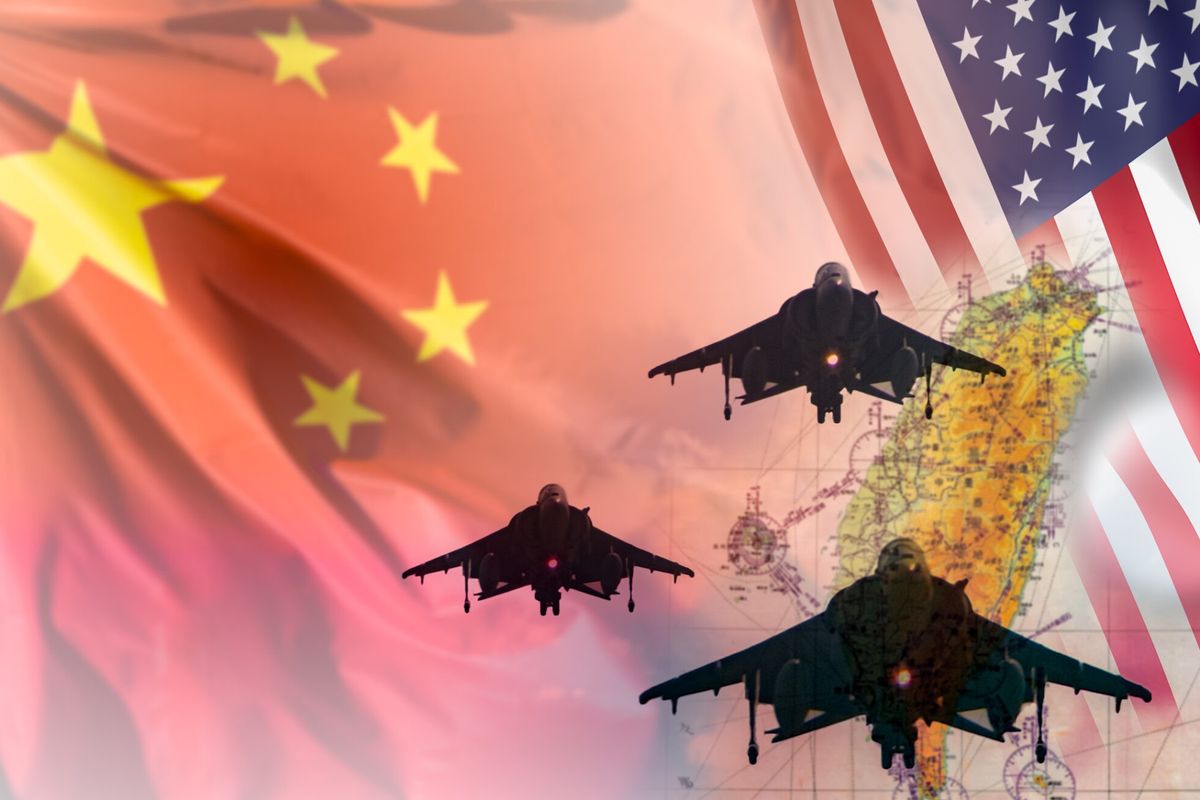The Democratic National Convention wrapped up on Thursday with nominee Hillary Clinton looking to establish herself as the “steady” hand on national security issues, compared to her Republican counterpart, Donald Trump. Clinton sought to prop up her national security credentials with speeches by high profile supporters such as former Defense Secretary and CIA Director Leon Panetta and retired Marine General John Allen, and used her acceptance speech to make a pitch to voters that she is the only candidate capable of serving as commander in chief.
The Cipher Brief’s Mackenzie Weinger spoke with former CIA and NSA director General Michael Hayden to get his take on Clinton and the Democratic Party’s appeal to voters on national security, the impact of Trump’s comments to Russia in the last week and whether he would support Clinton after watching the convention.
TCB: There was some criticism initially that the convention was ignoring the threat of terrorism and ISIS, but it did seem on Thursday that they trotted out a number of speakers, like Gen. John Allen, to vouch for Clinton’s national security credentials. It also seemed that they used the final night to present the Democratic Party as the strong military, national security party in a challenge to Republicans. Did the stronger emphasis late in the convention on the military and on Clinton’s hawkish foreign policy surprise you? Was it enough, or too little, too late?
MH: Well, I take your point — it was a lot about tone, and it was a lot more about tone the deeper you got into the convention. They identified themselves as more committed to American exceptionalism, more committed to overseas involvement, more committed to multilateralism, then I think Democrats have in my lifetime. Again, it was more tone than specific policy. And I think even the speakers on the last night - I know John Allen, he’s a very good friend - were very passionate about the concept of: she’s a better choice. It was more about the character of the candidate and certainly not about defending past records.
TCB: It didn’t seem like there were a lot of specifics on policy, and that was one of the main criticisms we talked about last week at the RNC, with Trump’s statement that he would “win fast” against ISIS without any details. Clinton briefly addressed her own plan, telling voters she has “laid out her strategy for defeating ISIS” and basically summarized it in three quick lines.
MH: I read the speech this morning, and when I was 60 percent through the speech, I’m thinking, we haven’t gotten any foreign policy yet. (laughs)
And then tucked in there were several paragraphs, not a lot, about foreign policy. But again, you’re right about ISIS — we’re going to have really good intelligence, we’re going to have really good air power, and our allies are really going to have good boots on the ground. And that was it. It’s not quite fair to hold the candidate for that kind of speech to ironclad specifics, but I would say over the four days, there wasn’t a whole lot of defense of the specifics of past policy. It was all about, “compare me to him and the choice should be easy for you.” And that I think was the real underlying tone.
TCB: If Clinton wanted to make a stronger national security position - and you said she didn’t really address past policies - what would have been an effective way for her to argue her past policy credentials? Or, were there any mistakes she should have raised?
MH: Look, it would have been hard because what’s to defend about Libya? What’s to defend about the Russian reset? What’s to defend about current Syrian policy? To be fair, she would have been tougher than President Obama with regard to Syria, but she was part of the administration. And so I understand why they didn’t do that, and again, it was about tone.
Frankly, and I’m very happy to say this, this was a more activist, more interventionist, more internationalist tone than the sitting president. And a more American exceptionalism tone than the sitting president.
TCB: It obviously struck some in the crowd. In Leon Panetta’s speech and in Allen’s speech, for instance, there were a lot of “no more war” chants, but then they were drowned out by “USA.” It was a striking thing for a Democratic convention to have that going when you might normally associate overt patriotism with the Republican Party.
MH: Quite right. I listened to “Morning Joe” this morning and Michael Steele, the former chairman of the RNC, said this was the best run Republican convention he’s ever seen. To summarize, it was more activist, more interventionist, more American exceptionalism, more internationalist than the Republicans and even more so than President Obama has been. But it was all about tone and about comparisons of character rather than truly being about any specific policies.
TCB: Leon Panetta really used his speech to try to frame that Clinton-Trump contrast. He spoke on the day that Trump called, it seemed, on Russia to find the emails that Clinton deleted from her private server she used while Secretary of State. Given that Trump’s Russia positioning was one of the national security arguments those at the convention made against him this week, including Clinton, what did you think of his call to Russia about the emails, as well as his statement he would consider recognizing Crimea as a part of Russia?
MH: I thought all of it was horrible. Shocking. He’s either asking the Russians to grab official emails with sensitive information in them, or he’s asking the Russians to invade the privacy of someone protected by the Fourth Amendment of the U.S. Constitution for her personal emails. That’s actually very stunning.
And then, when he gets asked a question about sanctions and recognizing the annexation of Crimea, he says, yeah, yeah, that’s something we’re going to look at. “We’ll be looking at that.” Number one, that’s a horrible answer. It suggests rewarding naked aggression and naked treaty violations. But I actually think he said that because he didn’t know what else to say. He wasn’t familiar enough with the topic, particularly the Crimea, to actually formulate something he had confidence in. And so he threw out the throwaway line — yeah, yeah, we’ll be looking at it, we’ll be looking at it — probably not even recognizing that saying “We’ll be looking at that” isn’t a throwaway line. It’s a big deal.
TCB: That makes me think of Clinton presenting herself as the candidate for those “looking for steady leadership.” Clinton, as a few other speakers did, raised the nuclear issue in that particular context. She said, “Imagine, if you dare, imagine, him in the Oval Office facing a real crisis. A man you can bait with a tweet is not a man we can trust with nuclear weapons.” Will that be an effective national security line for Clinton through the campaign?
MH: This goes back to my core conclusion that, rather than having the challenge of defending her past record - which I think has challenges - rather than being specific about what she would do in the future - which is hard - she’d just rather make it a contrast about personality and whether or not Trump is stable enough to respond to these questions. She was just revisiting the overall foreign policy theme, which was whatever it is you may or may not think of me, you sure don’t want him answering these questions.
TCB: Is that going to be enough to get the traditional Republican national security establishment to consider her? Or is it really an ineffective call?
MH: I don’t think anything she says or doesn’t say is going to affect the traditional Republican national security establishment. It’s all about what he says. And that’s what’s gotten folks in that group very concerned — which is different than saying automatically that they then support her.
TCB: Was there anything else that struck you?
MH: Let me talk a little bit about the Russians. Number one: frankly I think there’s a decent case that the Russians (hacked the DNC) and absent evidence to the contrary, I’m prepared to work under that assumption. Number two: the targeting of a major American political party by the Russian security services — that’s accepted international practice. That’s espionage. I don’t like it, but I understand what it is. But then using that information the way they appeared to use it, which was to affect the American political process - that’s beyond espionage. They were attempting to weaponize the information that had been stolen. And that’s new. And that’s important.
TCB: Since I asked you last week if you would support Trump after that convention — would you support Hillary Clinton after this?
MH: I’m not prepared to say that. So that’s the answer to that question. I would say the best of the Democratic convention appealed to the best of our nature, how’s that.
Read the Q&A with Hayden on Trump and the Republican National Convention here.













